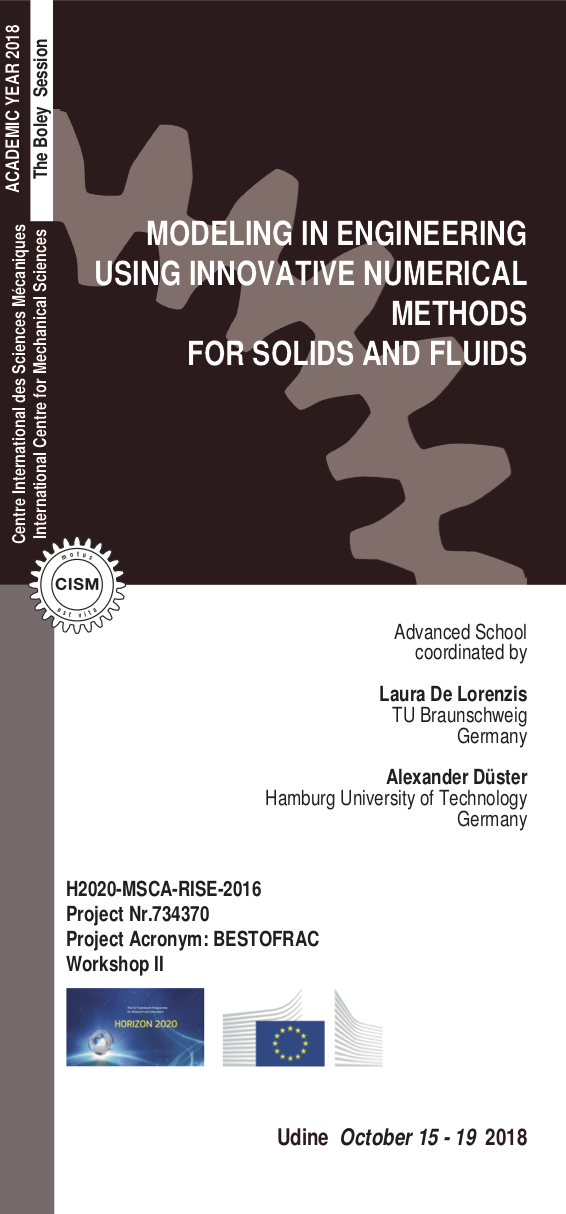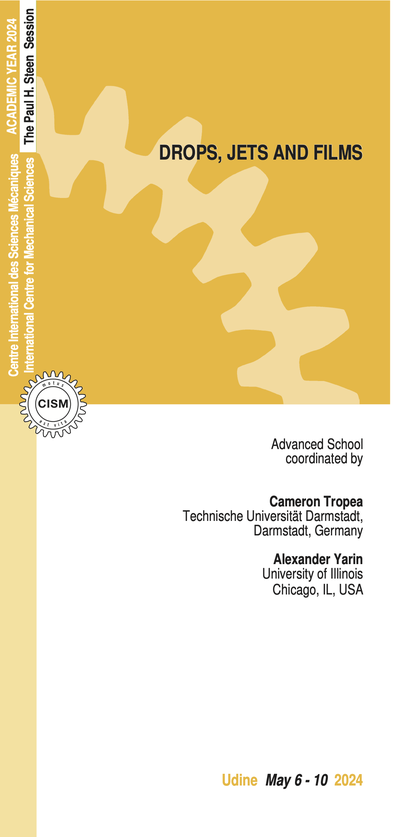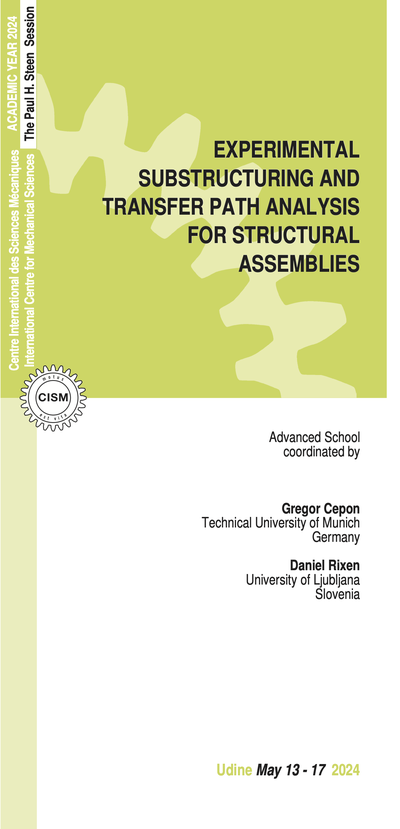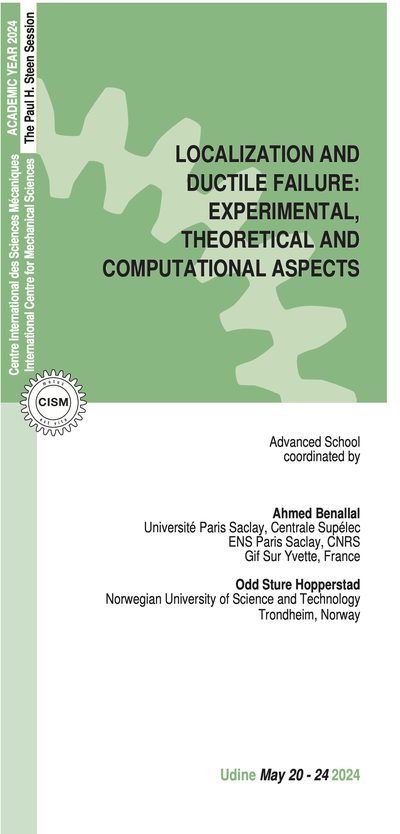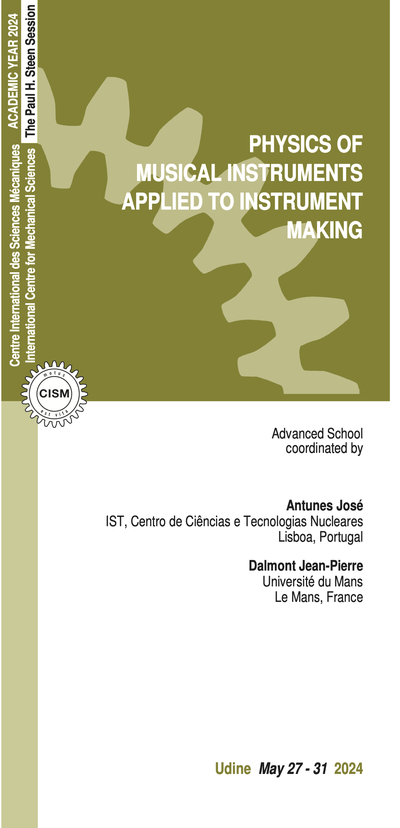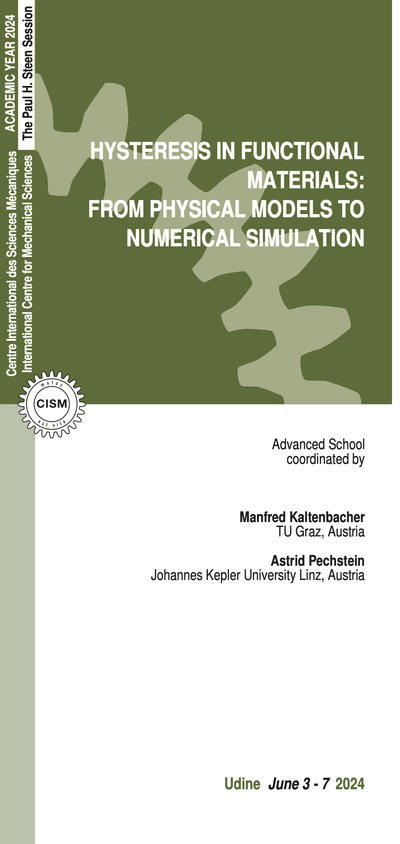The development of reliable and efficient discretization methods for solids and fluids supports the modeling process in engineering and enables the understanding of complex physical phenomena. In this way the design and optimization of products and processes can be accelerated in almost all fields of engineering. Based on numerical simulations, the number of time-consuming and expensive experiments can be significantly reduced. So engineering decisions can be supported by computed data, which might be very difficult if not impossible to obtain experimentally.
The fast growing performance of available computers itself, however, is not sufficient to satisfy the increasing requirements for the simulation of complex problems arising in fluid and solid mechanics. To this end, innovative numerical methods need to be further developed in order to enable modeling of complex engineering problems. In response to the requirement for improved numerical methods, in Germany a Priority Program has been established entitled “Reliable Simulation Techniques in Solid Mechanics. Development of Non-standard Discretization Methods, Mechanical and Mathematical Analysis”.
Inspired by the above mentioned challenges and stemming from the context of this Priority Program, the present CISM course focuses on innovative numerical methods for solid and fluid mechanics in order to support the modeling process in engineering. The objective is to present new and emerging simulation methods to young scientists and engineers from academia and industry.
The topics to be focused on are
- Particle methods addressing particle-based materials and numerical methods that are based on discrete element formulations and include fluid particle interaction as well as coupling with finite element methods. These methods are of importance in natural and engineering sciences.
- Phase field models, which have become very popular to model and simulate problems with surfaces and interfaces that are described implicitly.
- Fictitious domain methods, which allow for efficient discretization of very complex problems for which meshing with finite elements is very difficult.
- High-order continuous and discontinuous Galerkin methods, which offer high convergence rates and overcome many problems related to standard finite element approaches.
- Computational Fluid Dynamics based on modern finite volume schemes to efficiently discretize the Navier-Stokes equations.
- Nonintrusive coupling methods for structural models that allow to perform model adaptive simulations based on existing well developed solvers.
The course is addressed to scientists and engineers from both academia and industry working in the broad field of civil and mechanical engineering or applied physics and mathematics. The intention is to give a sound introduction into innovative numerical methods for solids and fluids which can be used to model complex problems in engineering.
H2020-MSCA-RISE-2016 Project Nr.734370
Project Acronym: BESTOFRAC
Workshop II, Udine, Italy


M. Ambati, T. Gerasimov, L. De Lorenzis, A review on phase-field models of brittle fracture and a new fast hybrid formulation. Computational Mechanics, 55(2): 383-405, 2015.
B. Cockburn, Discontinuous Galerkin methods for Computational Fluid Dynamics, in Encyclopedia of Computational Mechanics, Volume 3, Chapter 4, Edited by E. Stein, R. de Borst and T.J.R. Hughes, John Wiley & Sons, 2004.
A. Düster, E. Rank, B. Szabó, The p-Version of the Finite Element and Finite Cell Methods, in Encyclopedia of Computational Mechanics, 2nd Edition, Volume 2, Chapter 4, Edited by E. Stein, R. de Borst, T.J.R. Hughes, John Wiley & Sons, 2017.
L. Gendre, O. Allix, P. Gosselet, F. Comte, Non-intrusive and exact global/local techniques for structural problems with local plasticity, Computational Mechanics, 44(2):233-245, 2009.
F. Moukalled, L. Mangani, M. Darwish, The Finite Volume Method in Computational Fluid Dynamics, An Advanced Introduction with OpenFOAM® and Matlab, Springer, 2015.
R. Sevilla and A. Huerta, Tutorial on Hybridizable Discontinuous Galerkin (HDG) for second-order elliptic problems, in Advanced Finite Element Technologies, CISM International Centre for Mechanical Sciences, Vol. 566, Edited by J. Schröder and P. Wriggers, Springer International Publishing, 105-129, 2016.
P. Wriggers, Computational Contact Mechanics, 2nd ed. Springer, 2006.
6 lectures on: non-intrusive computational techniques and application to multi-scale analysis of complex visco-plastic structures and composites, numerical acceleration techniques, mixed approaches and homogenization like approaches, plates and junction and wave propagation.
6 lectures on: phase-field modeling in applied sciences and engineering, phase-field modeling of brittle fracture, monolithic and staggered solution schemes, combination with structural models for plates and shells, phase-field modeling of ductile fracture and of fracture in porous media, open issues.
5 lectures on: fictitious domain methods for problems of solid mechanics, high-order methods, numerical integration techniques for broken cells, local enrichment, applications in solid mechanics: numerical homogenization, wave propagation, nonlinear problems.
6 lectures on: Discontinuous Galerkin (DG) methods. After an introduction on DG for first-order PDEs and a historical overview on DG methods for diffusion problems, the lectures will cover the Hybridizable Discontinuous Galerkin method (concept, accuracy and superconvergence) and its application in convection-diffusion, compressible and incompressible Navier-Stokes.
6 lectures on: Practical Computational Fluid Dynamics with the Finite Volume Method. Lectures shall include the basics of the second-order accurate Finite Volume discretisation with polyhedral cell support. Attention shall be given to numerical handling of the computational mesh, linear solver technology and solution of coupled equation sets. The course shall be accompanied with examples from industrial CFD.
6 lectures on: discrete element methods including contact laws for normal and tangential contact, coupling with finite element methods using standard solid and shell elements where surface and solid coupling is applied, treatment of particle fluid interactions, use of high performance computing for discrete elements, applications to different engineering and biomechanical problems.
* Italian VAT is 22%.
